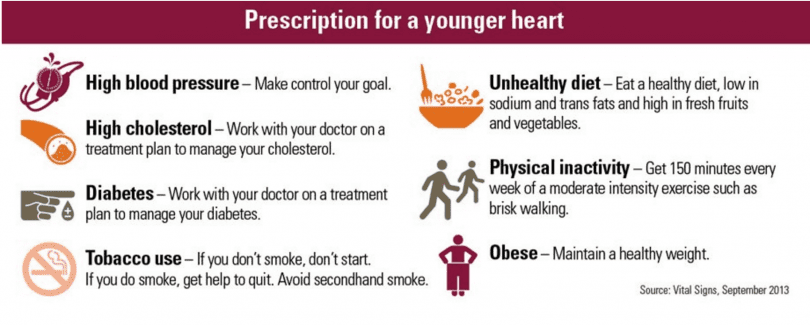A recent report from the Centers for Disease Control indicates that most Americans have hearts that are “older” than they are. Their hearts could be older because they smoke, they’re overweight, or their blood pressure is high and not under control, affecting their cardiovascular system. Knowing your heart age helps you understand your risk for a heart attack or stroke.
To keep your heart young, your blood pressure should be 120/80 or lower. So, make sure you get a blood pressure screening at the doctor’s office. If you’re ready to quit smoking, consider smoking cessation counseling. If you’re overweight, you might try obesity counseling. Medicare pays for all of these services. Click here to learn more.
About three out of four adults or nearly 70 million people have older hearts. People who understand their risk of cardiovascular disease have the chance to change unhealthy behaviors and improve heart health. Managing high blood pressure as well as your cholesterol level, not smoking, keeping a healthy weight, eating healthy foods and exercise can all improve your heart health. Though, some heart risks cannot be changed, such as your family history.
On average, the hearts of adults in the United States are seven years older than they should be. Men’s hearts are eight years older and women’s hearts are five years older. Generally, the difference between heart age and birth age is greater for older people than for younger people, and it’s smaller for people with higher incomes and higher education levels.
Black men and women were found to have the highest average difference in age between their heart and their actual age, 11 years.
People in the southeast United States– Mississippi, Kentucky, Alabama, Louisiana and West Virginia–overall have higher heart ages relative to their actual age than people in other states. States with a smaller proportion of people with higher heart ages include Hawaii, California, Utah, Colorado and Massachusetts.
Here’s more from Just Care:










